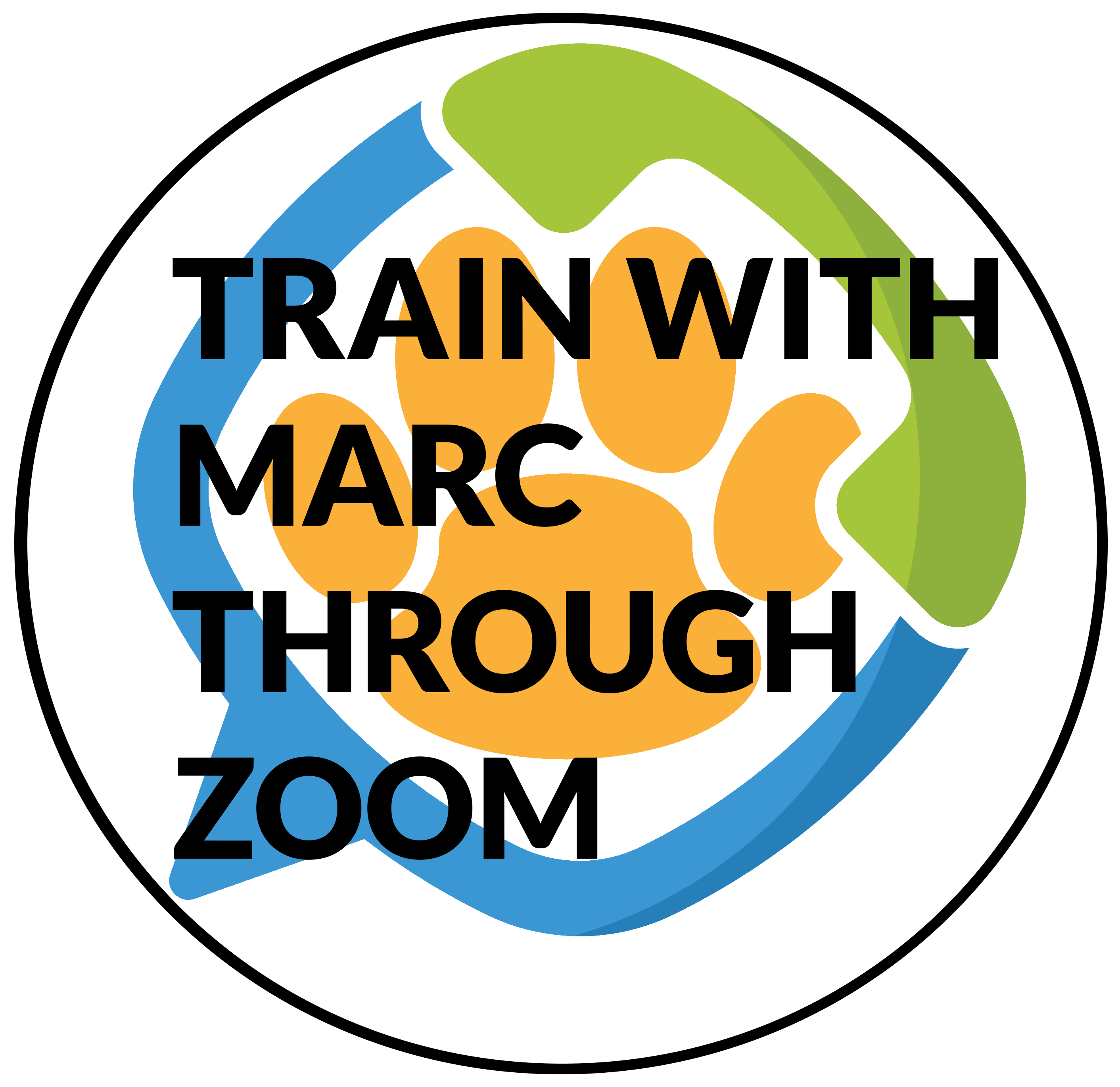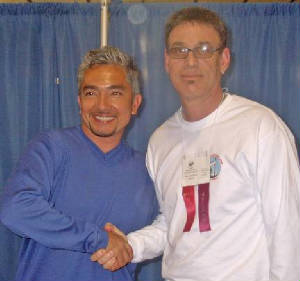Don't Yell!
Yelling doesn't help!
By Marc Goldberg, CDT
When you come home to find your favorite pair of shoes shredded by the family dog, it is frustrating! It is a natural human response to yell at the dog. Raising our voice is one way humans deal with frustration, anger and stress. You may feel temporarily better after you have yelled at the dog. However, when all is said and done, your venting has probably made your job harder.
While a quick loud “Hey!” might be just the thing to get the dog out of the trash can, it should be immediately followed by a quiet and encouraging “Good boy” when he turns his attention towards you. This quick, loud single word is not what I mean by yelling.
We have all seen people who yell at their dogs. They will scream at the dog long after he has stopped doing anything wrong. The dog is looking fearful and confused wondering what he has to do to stop the loud and scary behavior of his owner. The owner's behavior isn't helping the matter at all.
In dog training, it is important to mark critical moments. Doing so, enables the dog to discern precisely when he did the right thing, or the wrong thing. There are four types of markers:
• Good thing starts
• Bad thing starts
• Good thing stops
• Bad thing stops
In the above scenario, the dog's behavior triggers a bad thing (scary owner behavior) he will then try to stop the bad thing by changing his behavior. When his behavior changes, and the yelling continues, he doesn't have the opportunity to learn what the right thing is, consequently, he may not exactly figure out what the wrong thing is.
Let's take trash digging for example. The dog sticks his nose in the trash can and his owner yells “Get out of the trash!” and the dog jumps away from the trash can and looks at his owner. But the yelling keeps going. The dog does not understand the words being said, but he is understanding that he's still in trouble. Getting out of the trash didn't make things better, maybe the trash wasn't the problem after all, maybe it was something else entirely. There is no moment when the dog is shown what is right. There is no point of contrast to help him learn what is wrong. Some dogs can figure it out, but not as many as people seem to think.
If, however, the owner simply claps his hands when the dog gets too interested in the trash can, and when the dog looks up, says “That's a good boy, come here!” and gives the dog a scratch on the ear, the dog learns the exact moment he did something wrong, and the exact moment he did something right. This allows him to choose the right thing!
Also, yelling can teach the dog the wrong thing. If you dog is running after a squirrel and you start yelling, it is likely that your yelling (and chasing) will be interpreted as you “joining the hunt” and encourage the dog to chase more! Dogs are, after all, pack hunters. This is certainly not the message you want to convey.
Instead of yelling and chasing, walk (or jog) behind the dog calling the dog to you. Don't run and speak quietly. When your dog does come to you, you cannot punish him or else he will learn not to come when called!
Of course, the next step is to recognize that like most problems that frustrate us regarding our dogs, the solution is to teach the correct behavior ahead of time. In this case, that means teaching your dog to come when called. Bill Koehler once wrote “Obedience, like insurance, must be obtained before the moment of need.”
If you take the time to teach the dog the behaviors you want, instead of always teaching him what you don't want. You will enjoy your dog much more! Are you wondering, where to train my dog in Chicago? Give Chicago Dog Trainer a call because we can help you enjoy your dog more right now.
Call: 224-407-2131
© 2009 Marc Goldberg. All rights reserved.
Our Philosophy & Goals
Our philosophy is simple. Improve the life of both dog and family. All too often, unruly dogs do not fully enjoy life because their families constantly become upset and frustrated with them. This is difficult for both family and dog.
Our mission is simple. Make both dog and family happy.
What does is take to make your dog happy? He will thrive when you give him leadership and attention.

Making the family happy is a bit more complex.
Families typically want their dog to:
- Come when called, every time, on or off leash
- Walk nicely on a loose leash without pulling
- Sit until released
- Down until released
Families also want their dogs:
- Not to jump on people
- Not to charge through doors
- Not to dig in the garden
- Not to bark and chew inappropriately
- Not to climb on furniture you prefer they avoid
- Not to sniff and eat off the table and counters.
- Not to be wild and uncontrollable
- Not to ignore you when you want their attention




